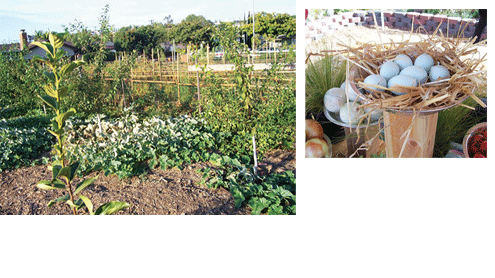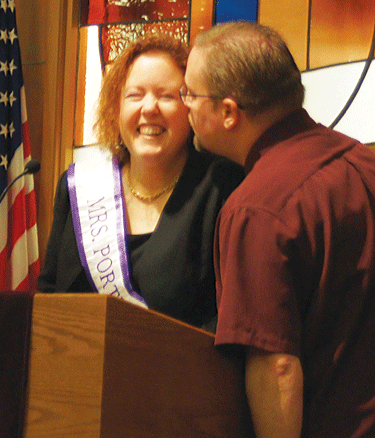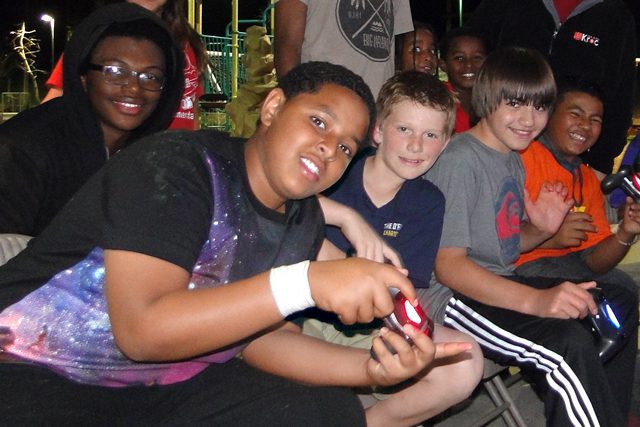
By Buffy Lincoln
Long Beach Corps farms two lots to serve the needs of its neighbors.
At one time, the Long Beach (Calif.) Citadel Corps had received 84 citations and numerous complaints from neighbors and local businesses against the land it owned across the street—a vacant lot landscaped in waist-high weeds and rocks.
A metamorphosis began in 2009, though, when the Long Beach Citadel Corps partnered with the City of Long Beach Pacific Gateway Workforce Investment Network and Office of Sustainability to use the site for a green jobs training program. Today—thanks to six volunteers from the program working daily for eight weeks—the once-cited eyesore has been transformed into two gardens, totaling 1.5 acres, that produce vegetables and fruit and house chickens, ducks and tilapia.
The main lot contains row after row of the usual garden vegetables: green beans, tomatoes and onions. Farther along are items not usually found in a community garden. On the right is an orchard with pomegranate, fig, nectarine, pear and peach trees—even a banana tree. The rear yard has a butterfly garden, designed to attract, feed and protect Monarch butterflies.
An alley leads to a smaller backyard—the learning yard—where teaching and demonstrations by Kelli Johnson, better known as the “garden lady,” take place. This area houses chickens, roosters and ducks in coops. An aquaponics system, part of a “going green” project, runs behind the coops. This system purifies and recirculates its water, supplying fresh irrigation to a tilapia breeding tub. Other nature and space-saving features include composting, backyard scale solar, rain garden with collection cistern and swale and vertical gardens.
Garden maintenance is a combined effort. Long Beach Citadel Corps members, volunteers and neighbors pull weeds, plant and pick. After harvest, the fruit and vegetables are available to the workers and the community. But the corps’ outreach is more than growing and distributing food. It also donates gardening tools to the community, manure to the city and compost to local schools.
“Our outreach and community support focuses on the ‘Give a Lot, Grow a Lot’ program,” Johnson said. “It encourages landowners to convert empty lots into edible gardens and backyard fruit harvests, directing fresh produce to The Salvation Army food pantry. We encourage the system of square-foot gardening for the home gardener and have a demonstration of how to turn your front yard into a ‘victory garden’ and to share your crops with food banks.”
Johnson noted that future projects are already in the works, including planting a dyer’s garden with how-to dying classes, a pop-up cart for deliveries and street selling, gardening workshops, incubator farms, school tours, urban homesteading classes and a veteran farmer network.
For information on the Long Beach garden or any questions regarding starting your own, contact Johnson at (562) 528-6259 or kellijohnson1@mac.com. Visit her blog at thefarmdesk.wordpress.com.














